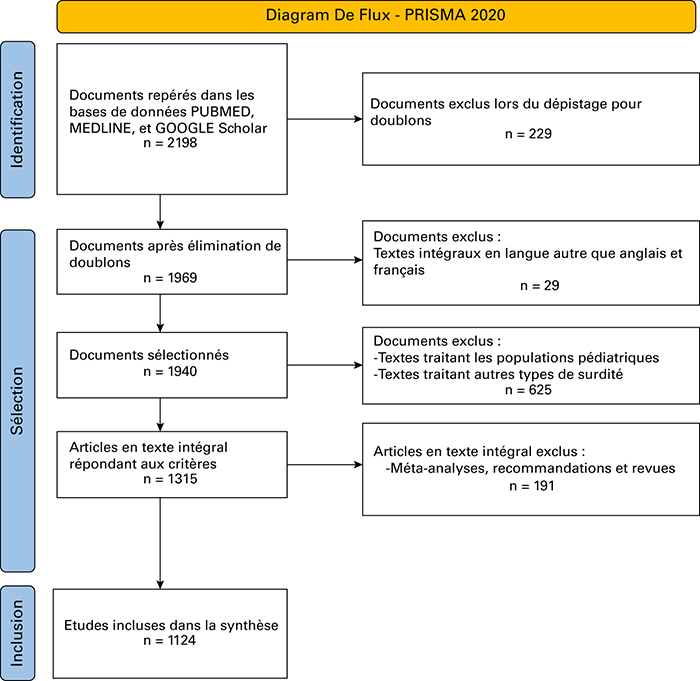Gériatrie et Psychologie Neuropsychiatrie du Vieillissement
MENUEarly management of presbycusis: recommendations from the French Society of Otorhinolaryngology and Head and Neck Surgery, the French Society of Audiology, and the French Society of Geriatrics and Gerontology Volume 21, issue 1, Mars 2023
- Key words: recommendation, presbycusis, age-related hearing loss, hearing rehabilitation
- DOI : 10.1684/pnv.2023.1090
- Page(s) : 9-20
- Published in: 2023
Introduction. Presbycusis is the physiological decrease in hearing due to advancing age and begins well before the sixth decade. These recommendations recall the principles of early diagnosis of presbycusis and the means of optimal rehabilitation as soon as the first symptoms appear. Material and methods. The recommendations are based on a systematic analysis of the literature carried out by a multidisciplinary group of doctors and audioprosthetists from all over France. They are graded A, B, C or expert opinion according to decreasing level of scientific evidence. Results. The diagnosis of presbycusis is more difficult at the beginning of its evolution but a certain number of tools are available for its early diagnosis and its management in face-to-face or even distance learning. Conclusion. In case of a clinical profile suggestive of presbycusis in a young subject, especially if there are several family cases, it is recommended to propose a genetic investigation. It is recommended to perform free-field speech audiometry in noise to measure intelligibility in an environment as close as possible to reality. Questionnaires can be used in addition to audiometry to best assess the patient’s disability. It is recommended that hearing rehabilitation with a hearing aid or cochlear implant may slow or prevent cognitive decline. Combined auditory and cognitive rehabilitation should be offered regardless of the time elapsed since the fitting. It is recommended to integrate programs accessible via smartphones, tablets or the Internet, integrating different training domains in addition to face-to-face sessions.


